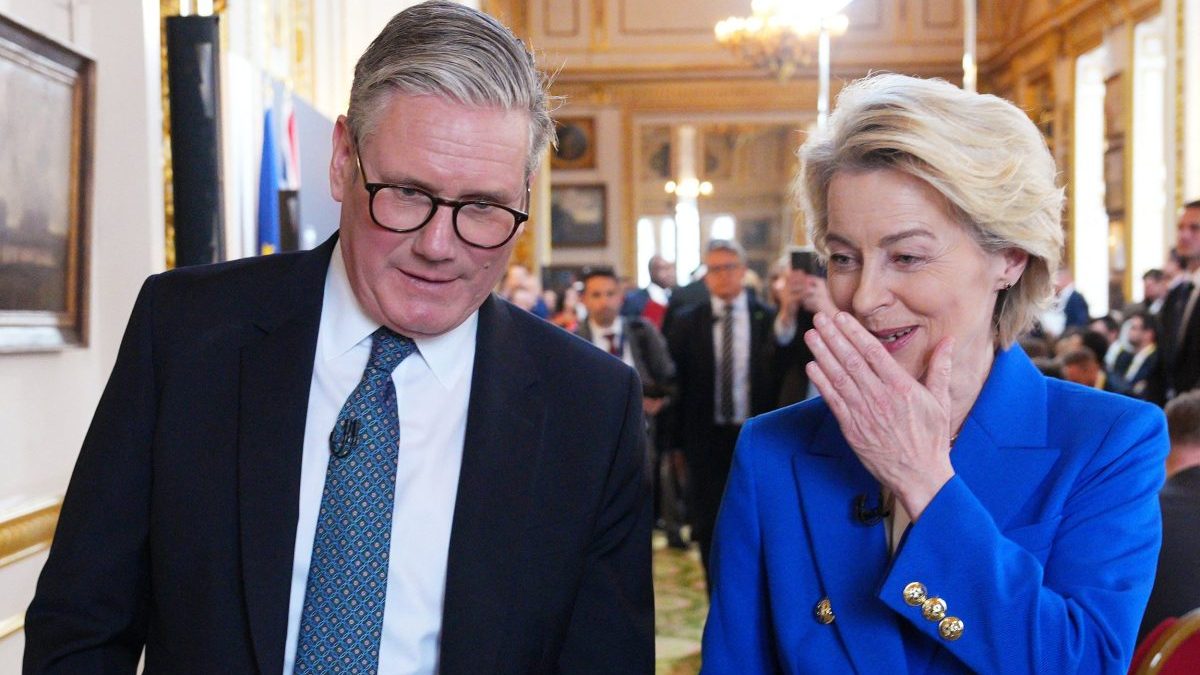Despite a broad softer Brexit agreement, the UK still has to hammer out the details with Europe
The UK and EU are set for a Brexit reset clash on plans for a new under-30s visa, with Brussels continuing to demand more than the Government is willing to accept.
The i Paper understands that officials in London believe the EU’s mandate for talks on a so-called youth experience scheme has changed little from the controversial draft plan for a youth mobility scheme Brussels published in April 2024.
That draft proposal called for EU citizens aged 18 to 30 years old to be given the right to travel to the UK for four years, and vice versa.
It also called for British universities to stop charging Europeans higher international student fees, and the waiving of “excessive” fees and the immigration health surcharge.
Any failure to reach an agreement or drawn out negotiations – due to start in the autumn – will inevitably delay some of the headline achievements of May’s Brexit reset summit, most notably an agreement for youth mobility allowing those under being able to live and work in the EU.
The two sides subsequently agreed at May’s UK-EU summit to work towards a “balanced” youth experience scheme that would be capped in numbers.
EU and UK on collision course
But despite briefings from EU sources that it was willing to make concessions to get a deal over the line, both UK and Brussels insiders believe the mandate – which has been kept tightly under wraps since it was agreed by member states in June – will still allow negotiators to push for these tough terms.
This will put the two sides on collision course, with EU relations minister Nick Thomas-Symonds signalling this week he wants the youth experience scheme to be modelled on the UK’s existing youth mobility schemes with countries like Australia, Canada, New Zealand, Japan, and South Korea.
These are time-limited to two years – with a one-year extension available for Australians, Canadians, and New Zealanders – and those taking part must pay the £776 annual immigration health surcharge, a £319 application fee, have £2,530 in savings, and pay international fees.
UK officials are, as a result, understood to be expecting tough negotiations, but view the EU mandate as an opening position with Brussels naturally wanting to extract as much as it can.
A European diplomatic source also acknowledged: “It’s a negotiating document, there needs to be a lot of give and take on this issue.”
Food imports linked to youth mobility
They warned that some member states want to make the so-called SPS (Sanitary and Phytosanitary Agreement) deal on easing cross-border food and agriculture trade – viewed as the major economic prize of the Brexit reset by the UK – conditional on signing a youth mobility agreement.
But the source said this approach was unlikely to be adopted by the European Commission, which will run the negotiations.
“There are separate negotiations, but I think some countries still think about connecting some of the things,” the source said.
“But the commission is saying there are different working groups involved, there are different strands, so they are not really that open to that.”
UK will have to make concessions
Britain is meanwhile aware it will also have to make concessions on the youth experience scheme, but is likely to talk up the fact that it could have a positive impact on economic growth and would be controlled by time limits and caps on numbers, in a bid to ease concerns over immigration.
Despite the promise of May’s Brexit reset summit, experts said there would be tough negotiations ahead.
Anand Menon, director of the UK In A Changing Europe think-tank, said: “As with everything to do with Brexit, the devil will lie in the detail.
“And the details we have gleaned about the EU’s approach to the negotiations on youth mobility suggest there are some really tough negotiations to come.”
The EU said it would not comment on the youth experience mandate.
